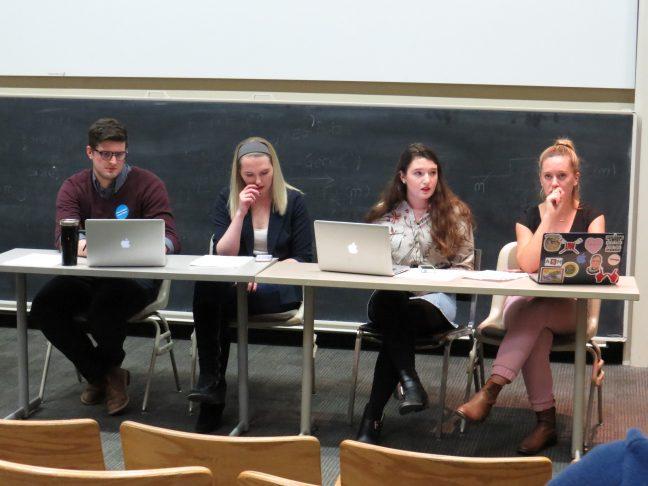College is a time for young people to focus their learning and explore their viewpoints as individuals in a modern context. To do this, students must recognize that our college experience is decidedly different than that of our parents.
Cultural and historical events are the greatest influences in shaping a person’s political beliefs. Parents may try to instill their political views, shaped by the significant formative events of their generation, on their children at varying degrees of intensity and frequency. But college is the place where we can begin to fight this pattern
A study led by Elias Dinas, a researcher from the London School of Economics and Political Science, found that if a child comes from a home where politics is spoken about often, they will likely abandon the political views of their parents. This occurs because those children are more likely to discuss politics with others and learn new viewpoints.
College is the perfect opportunity for students to discover their own political preferences, especially since the college transition gives young adults a new degree of independence. University of Wisconsin is no different as it is home to a politically outspoken and diverse student body.
Even so, these children with flip-flopping views are among the minority. Gallup reports that only 21 percent of U.S. teens say they are more liberal than their parents. Only 7 percent say that they are more conservative than their parents. This leaves 71 percent, an overwhelming majority, of American teenagers reporting that their views just about match those of their parents.
To some extent, there’s nothing wrong with finding that one’s political views match their parents’, as it’s important to understand how history has shaped American society. But college is a unique time in which students can learn more about the issues they find important and explore different ways of thinking.
With that, students should take advantage of the multitude of political and advocacy groups UW offers and explore issues as they relate to their own generation. Joining a political organization gives students with similar experiences the chance to discuss issues through a lens that is purely their own —without a parent trying their best to create a new generation in their image.
UW is home to 208 political and advocacy groups, giving students endless opportunities to meet others with similar political stances and fight for causes they believe in. Now is the time to explore. So go to a College Democrats or College Republicans meeting, or attend a march or a vigil. Write an op-ed piece for a campus paper, or decorate a coffee cup to support women’s education.
College students are undeniably busy and there’s already so much to do, but it is worth making time to explore issues as an independent adult in order to find one’s true self and make our political landscape a more respectable place.
Juliet Dupont (jdupont@wisc.edu) is a freshman intending to major in political science and journalism.


